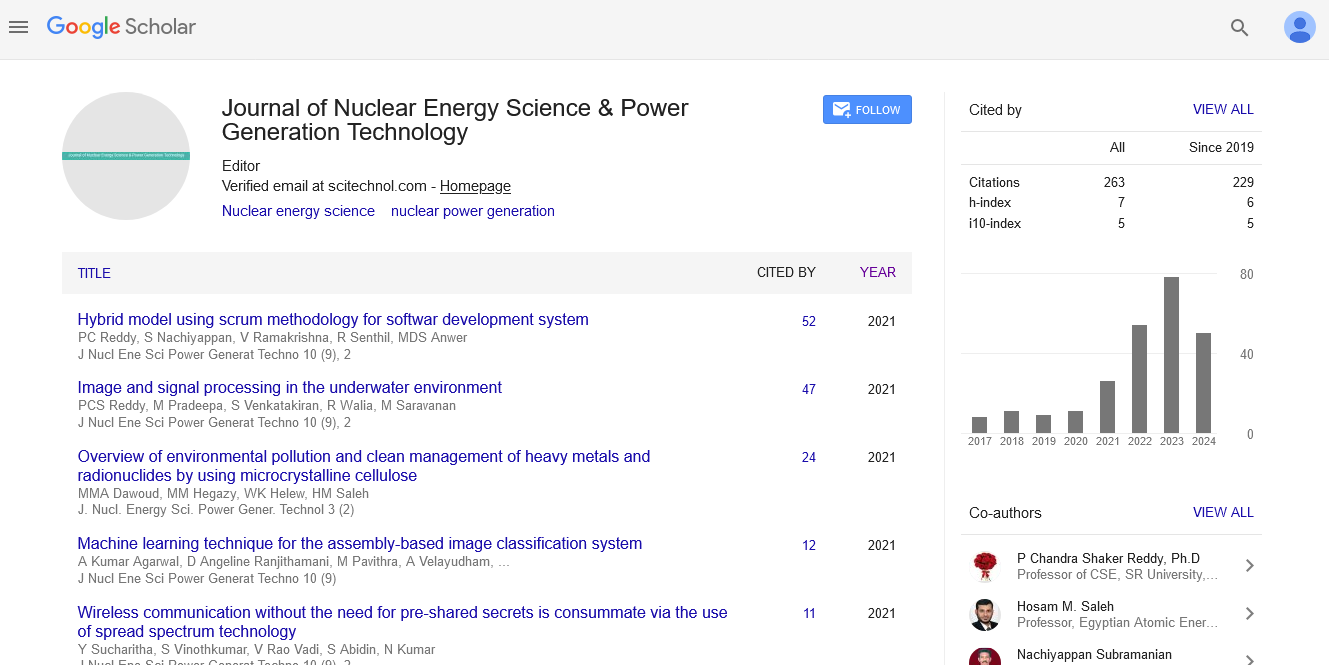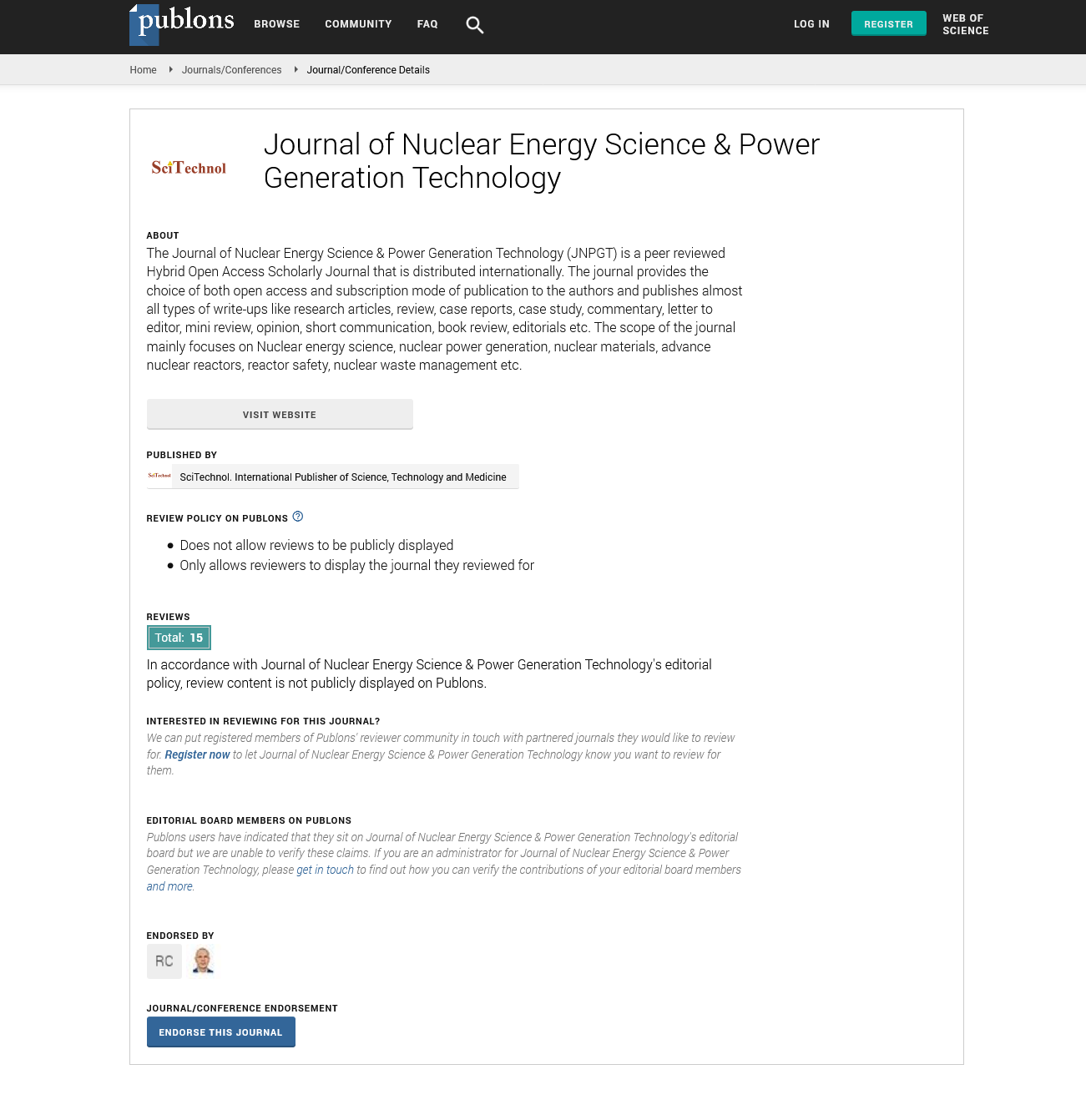Polymer nano composites electrolytes for lithium ion batteries: Science and technology
Emad M Masoud
Benha University, Egypt
: J Nucl Ene Sci Power Generat Technol
Abstract
Nano technology and energy is the most important subject of today’s society because this field has an important economic side for all countries all over the world and researchers throughout the world are putting a lot of effort into how to make energy as environmental friendly as possible. How well this is done depends on more than one factor, such as structure of the system that will produce energy. Battery, especially rechargeable battery, can store electrical energy in the form of chemical energy and deliver it with high conversion efficiency, is the most optimal form of energy storage and playing an irreplaceable role in the world wide industry. The lithium ion battery can be considered to be a container holding a large amount of energy, and a number of studies have attempted to enhance the energy density of the lithium ion battery. However, at the same time, the remarkable advantages of the lithium ion battery can be a practical problem. If a device can contain higher energy, there is a higher risk of fire explosion. Therefore, safety is a key issue for future applications of the lithium ion battery such as large-scale batteries for electric vehicles and load leveling devices. In order to overcome this problem, the development of all solid state batteries using a solid electrolyte will be a good approach. Polymer nano composites electrolytes, new electrolytic materials competing for a place in the future energy generation, storage and distribution markets. Polymer electrolytes offer many advantages over their more conventional liquid counterparts in these developing technologies, such as: Adequate conductivity for practical purposes, flexibility, easy of processing into thin films of a large surface area, good mechanical stability, chemical-electrochemical stability and volumetric stability through charging and discharging processes.
Biography
Emad M Masoud has completed his PhD from Benha University, Egypt and Post-doctoral studies from Karlsruhe Institute of Technology and Tuebingen University, Germany. He has published more than 10 papers in reputed journals and has been serving as an Editorial Board Member and Reviewer in international journals.
Email: emad.youssef@fsc.bu.edu.eg emad_masoud1981@yahoo.com
 Spanish
Spanish  Chinese
Chinese  Russian
Russian  German
German  French
French  Japanese
Japanese  Portuguese
Portuguese  Hindi
Hindi 

